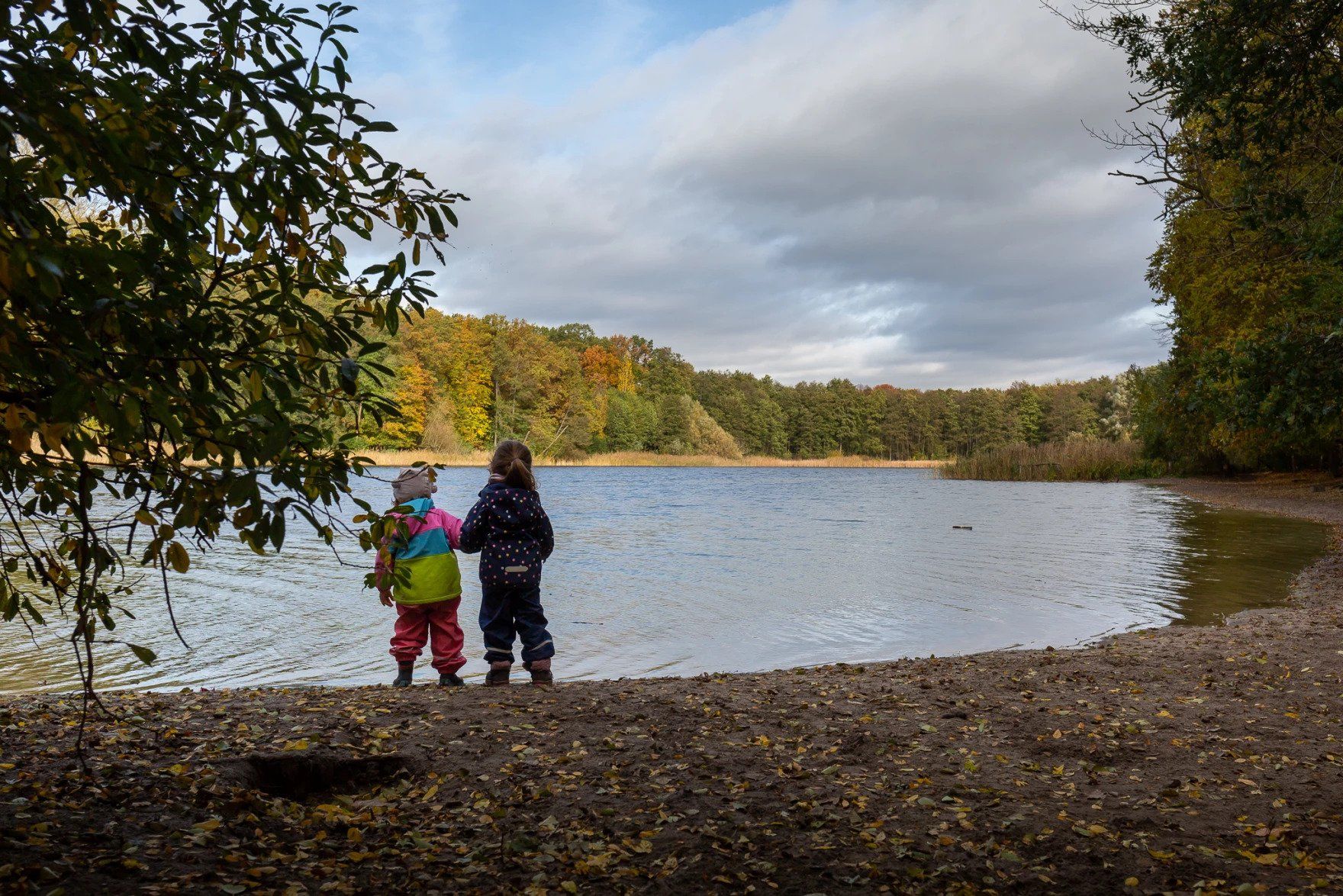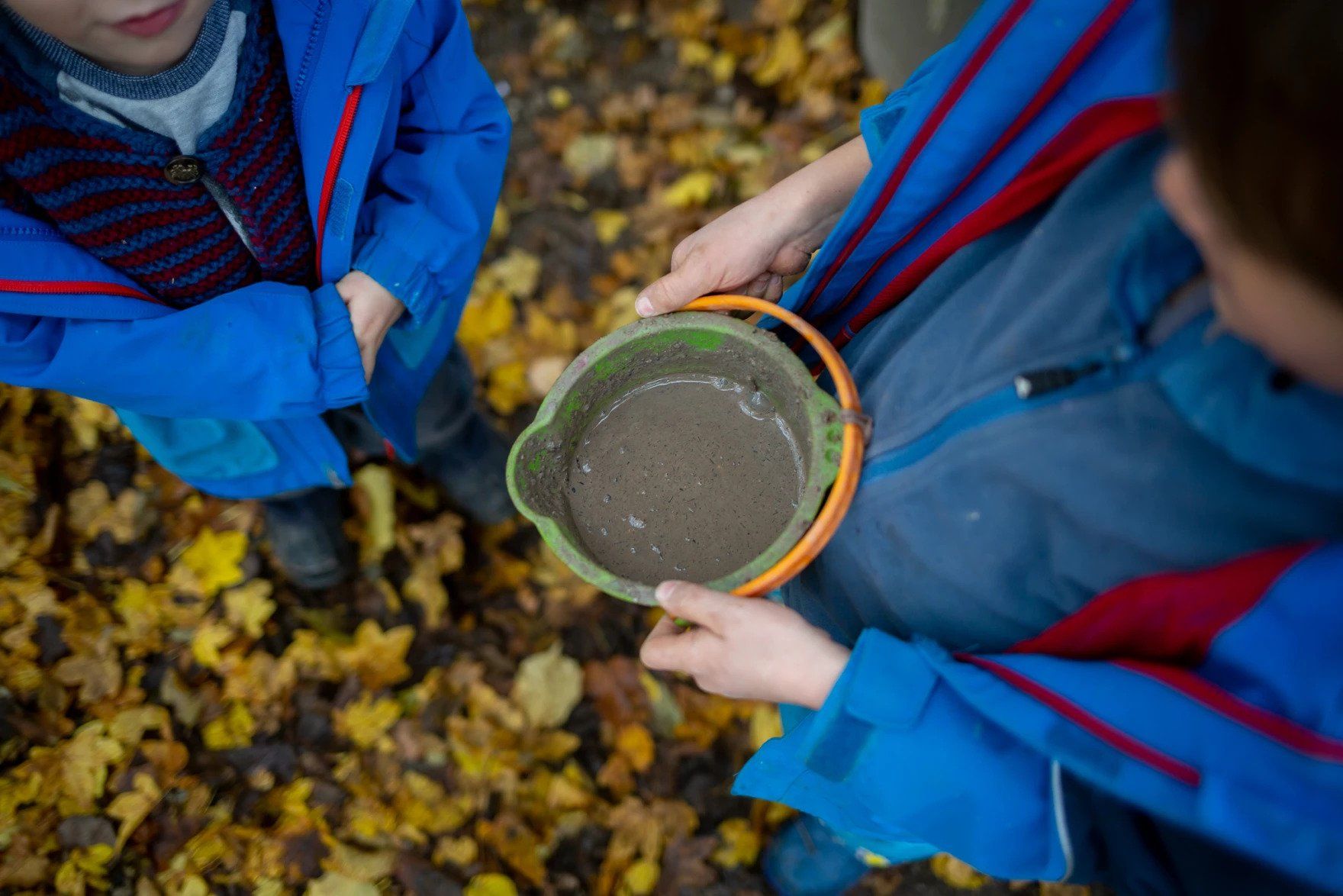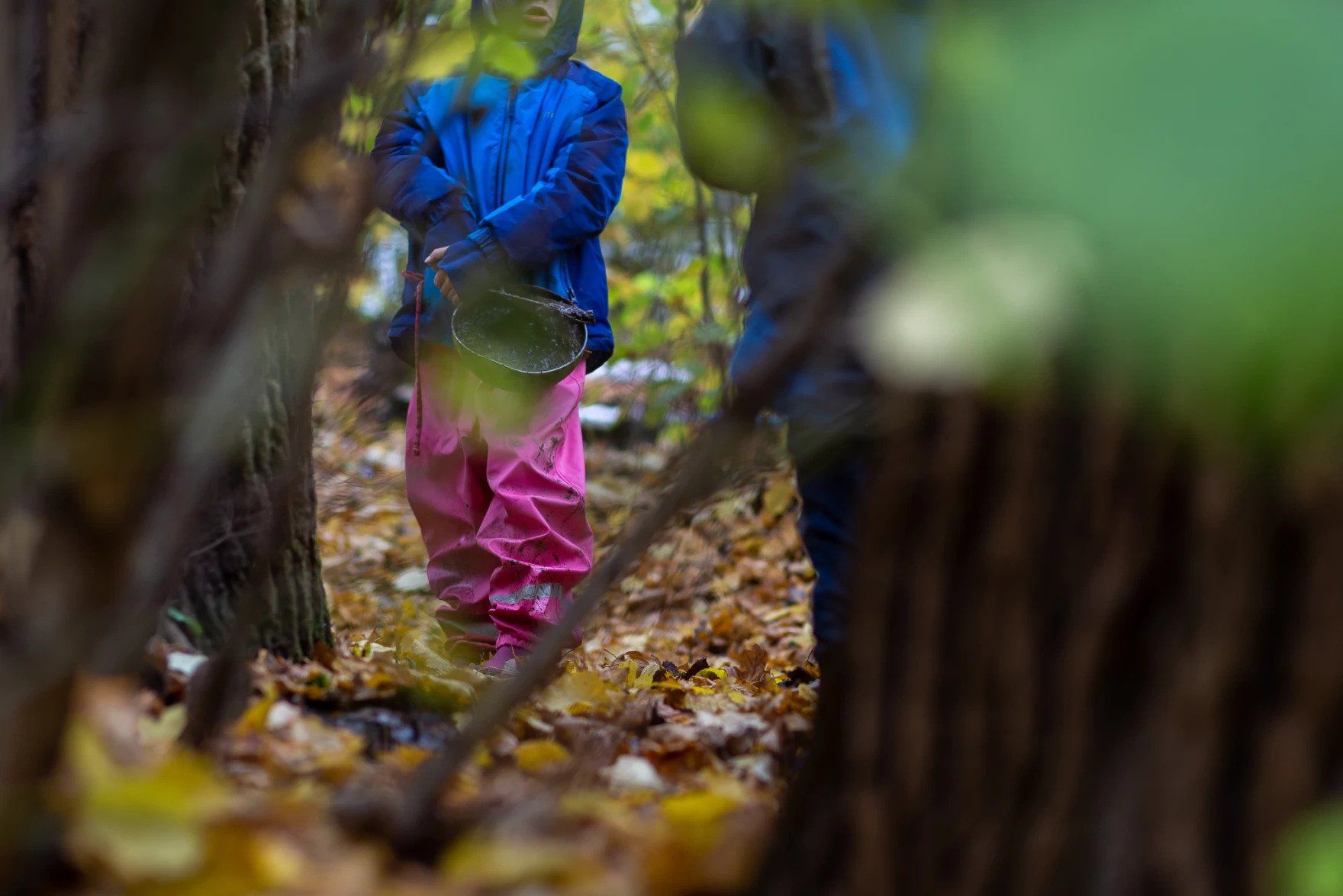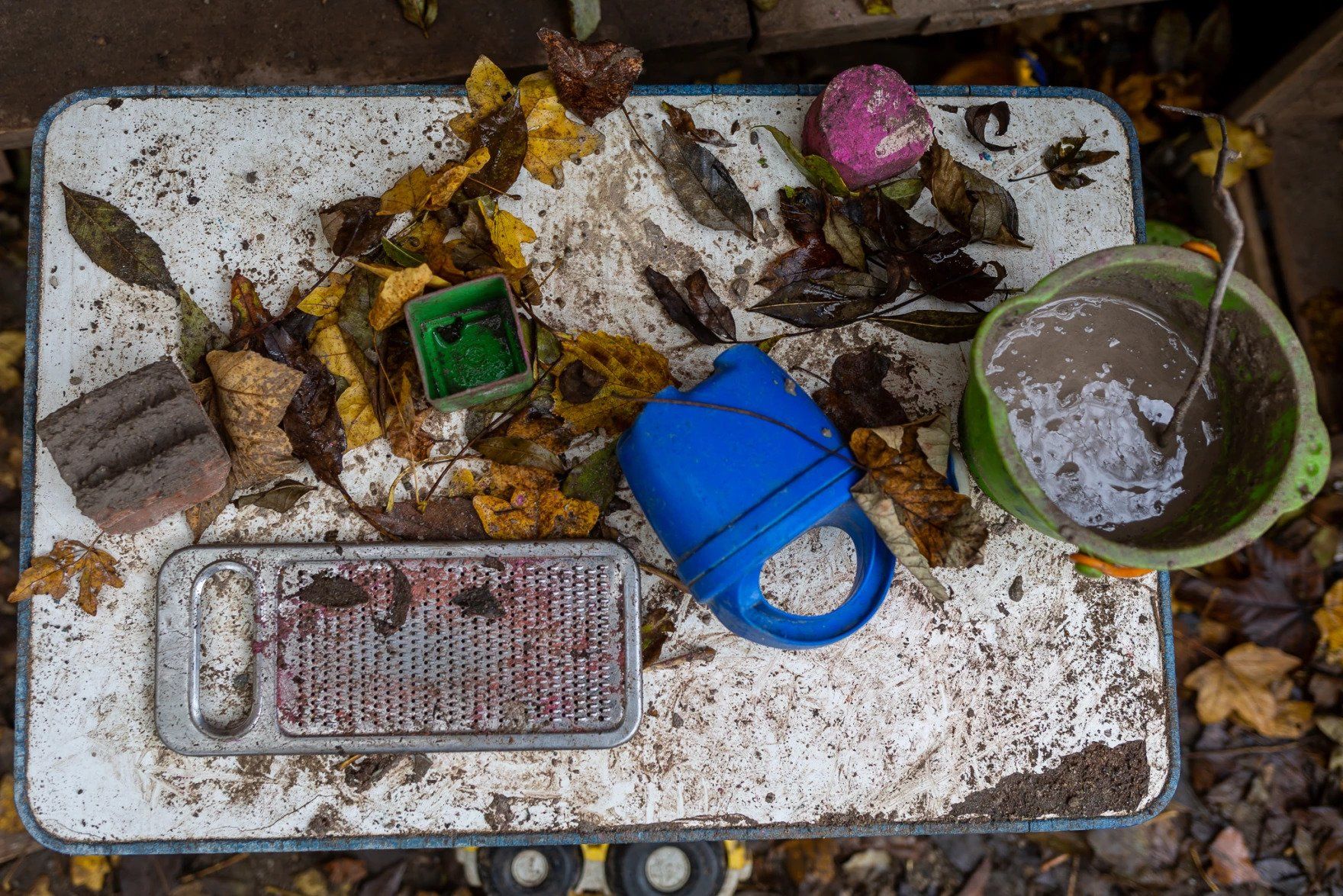Ulli Boström’s co-teachers at her school, Waldkita Fila, include a dog, two ponies and a half-dozen chickens.
A log pole fence separates the forest preschool from the rest of a woods on the western edge of Berlin, Germany’s bustling capital city.
“I think for children it is a dream to be here, because they can be free,” said Boström, who founded the forest preschool — or Waldkindergarten — seven years ago.
There’s no classroom in this small clearing, just covered picnic tables and a small trailer. The kids spend most of the day on the other side of the fence — in the woods.
After months stuck indoors and in front of computers, parents and educators are looking for more ways to get kids outside. Open-air classes reduce coronavirus risks. Plus, they’re fun.
In Europe and the U.S., schools have erected tents in their yards or expanded school gardens. Forest preschools go a step beyond that. Their advocates say nature should be the tool for learning, not just the backdrop.
The concept of forest preschools started in Scandinavia and is popular in Germany as well. Most are run independently, often with help of a parents group. But they receive government subsidies, bringing the cost down to about 100 euros — or $120 U.S. — a month.
Most have a tent or shack and maybe a few toys. But nature is the playground.
Kids should be allowed to roam free, Boström says, arguing that preschool today often is too structured and serious. As for learning, it’s more on the fly, like a headcount before heading off into the woods.
Boström thinks kids sometimes are “over-educated.” She said: “They have to learn to count, and to learn to blah, blah, blah. And you see they learn it here as well but in a different way, in a totally free way.”
On a gray fall day, the kids are all dressed in rain pants, heavy coats, gloves and hats, and rubber boots. They spend nearly all day, every day, outside.
The children lead the way down a well-known path. At an intersection, Boström asks what the day’s destination should be. A large fallen oak tree is the quick consensus.
Advocates of nature-based education cite research that’s found it has benefits for imagination, resilience and problem-solving, as well as health. The fallen tree will be a bus, or a ship, or whatever else the children come up with. Mud can serve innumerable functions.
Even before the pandemic, the number of forest preschools in the U.S. was growing, doubling to almost 600 in the last three years, according to the Natural Start Alliance. Still, that’s about a third of the total in Germany, which has a quarter of the population of America.
Germany’s Waldkindergarten educators say the concept of forest learning is uncomplicated. Boström’s advice to newcomers: “They only need warm clothes, if it’s cold.”
And keep the kids active and moving.
Annet Zander, founder and director of a forest preschool in Munich, said she usually gets the same question from prospective parents:
“The most important question is, ‘What about the toilet?’”
There’s an outhouse, built of wood, of course.
Delaney is reporting on schools in Germany through an Education Writers Association fellowship, with additional support from the Pulitzer Center.
COVID-19 Update: The connection between local and global issues–the Pulitzer Center's long standing mantra–has, sadly, never been more evident. We are uniquely positioned to serve the journalists, news media organizations, schools, and universities we partner with by continuing to advance our core mission: enabling great journalism and education about underreported and systemic issues that resonate now–and continue to have relevance in times ahead. We believe that this is a moment for decisive action. Learn more about the steps we are taking.




